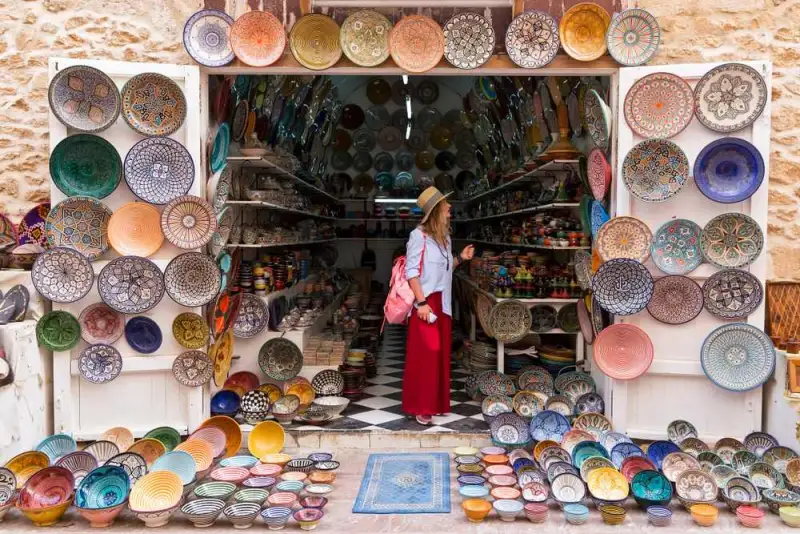
From the Atlas to the Sahara: Exploring Morocco Travel and Falling in Love with its Natural Beauty
Exploring Morocco From the Atlas to the Sahara. The Perfect Morocco Travel Blog to Falling in Love with its Natural Beauty, and Top Attractions!
Experience the best of Morocco with our 5-Day Morocco Itinerary. Explore the rich culture, and stunning landscapes of Morocco. Enjoy the streets of Casablanca and souks of Marrakech. Book now!
The Ultimate Imperial Cities of Morocco Tour: An exclusive 8 Days in Morocco experience. Book Morocco Trip Package Now!
Embark on a 10 Days Morocco Itinerary, exploring Casablanca, Rabat, Chefchaouen, Fez, Ifrane, Merzouga’s dunes, Ouarzazate, Ait Ben Haddou, and Marrakech. Book your Trip To Morocco Today!
Visit the Highlights of Morocco on our Morocco Adventure Tour. Explore Casablanca, Chefchaouen, Marrakech & more. Plan Your Trip Today!
Exclusive 9-Day Morocco Desert Tour! Explore Morocco Sahara Desert with our luxurious Morocco Desert Camp experience!
Got questions? We’ve got answers. Find everything you need to know to plan your perfect trip.
Although you can pay in euros or U.S. dollars in most shops and restaurants,it is always better to carry the local currency during your Morocco Tour. You will find many exchange offices and banks that exchange currency for you.
See how we’ve made every journey exceptional — straight from those who’ve traveled with us.
See the world through the eyes of our travelers and Get inspired by real experiences!
Explore unique stories, insider tips, and must-see spots to make the most of your visit.
Explore our curated travel blogs to Stay updated with the latest travel tips, destination guides, and insider stories!
From travel tips to destination highlights - Explore our travel guide!